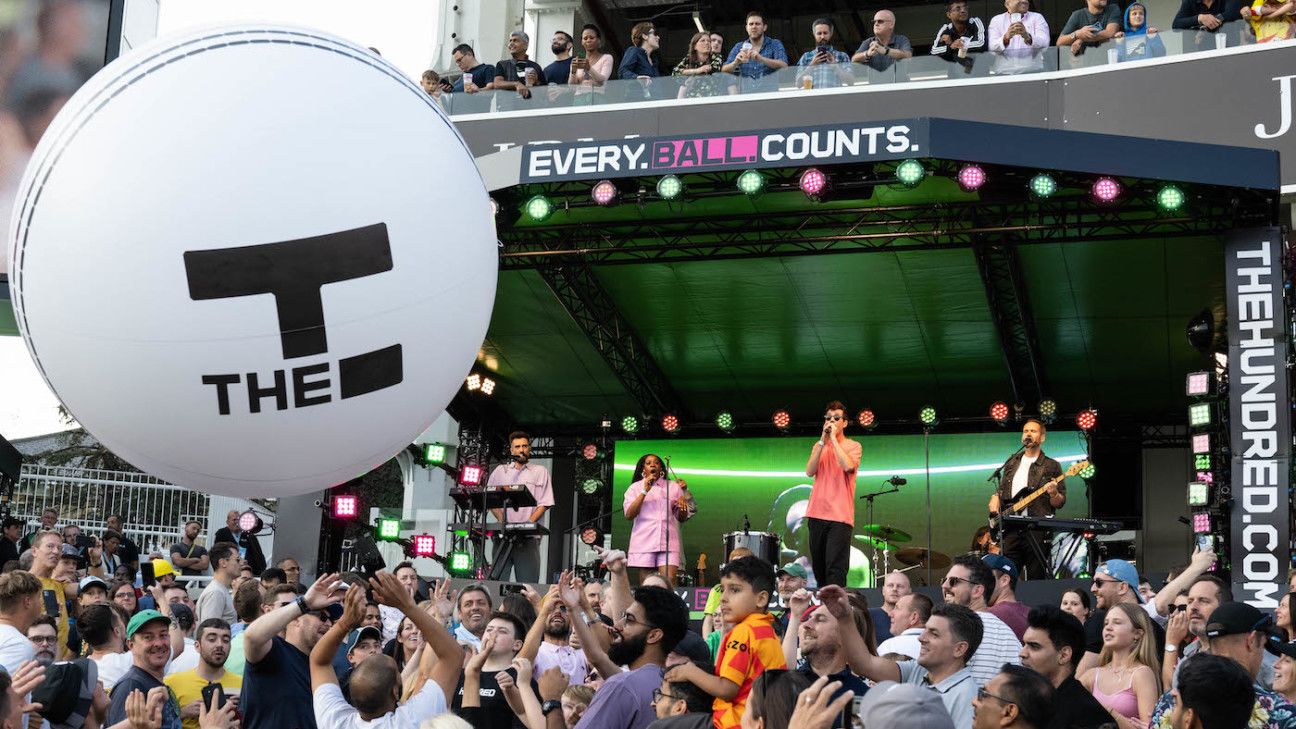The ECB have consulted with owners of IPL franchises, private equity firms and sovereign wealth funds on the prospect of investment in the Hundred, and want counties to reach a decision on its future in the early months of the 2024 season.
The Hundred’s existing model features eight clubs which field both men’s and women’s teams and are owned entirely by the ECB. These clubs have been run by boards comprising county representatives and independent directors in the tournament’s first three seasons.
But the ECB and counties have discussed the model extensively since the end of the 2023 season and are in the second phase of a three-part consultation period, in the hope of reaching a decision in April 2024. This would allow them time to implement changes for the 2025 edition of the tournament.
As things stand, the ECB’s preferred option is to open the tournament up to private investors, seeing the Hundred as an opportunity to bring money into the English game. The specifics of the model remain up for discussion, with one possibility involving the addition of two new teams – most likely based in the south-west and north-east.
The most likely outcomes both involve the ECB handing 50% equity stakes in Hundred teams – which would become franchises – to their primary host counties. Surrey, for example, would be given a 50% stake in Oval Invincibles, while MCC, who own Lord’s, would be provided a 50% stake in London Spirit.
Guy Lavender and Bruce Carnegie-Brown, MCC’s chief executive and chair, told members in a meeting on Monday evening that the ECB has been speaking to a wide range of potential sources of capital including IPL franchise owners, private equity firms and sovereign wealth funds.
That raises the prospect of investment in the Hundred from the Middle East, potentially from Saudi Arabia’s Public Investment Fund (PIF) or the various state-owned funds in the United Arab Emirates. MCC also encouraged members to consider which potential investors they would feel comfortable with the club being in partnership with.
Lavender told ESPNcricinfo in a statement: “The purpose of the Members’ informal meeting was to socialise some of the issues with the membership regarding the future direction of The Hundred, including developing thinking and engaging them with the information available at this time.
“At present, nothing has been proposed or decided and it is premature to land on any particular conclusions until the ECB consultation and decision-making process involving the whole game has been completed, as well as our own consultation with Members.”
Discussions at ECB level have also raised the prospect of an 18-team ‘open pyramid’ structure which would see the addition of a second division of the Hundred with promotion and relegation. This model would also involve clubs being opened up to private investment, though appears to have lost some of its initial support.
Despite extensive speculation over its future since Richard Gould and Richard Thompson took over as chief executive and chair at the ECB, the Hundred will continue in some form for at least five more years and is underpinned by Sky Sports’ broadcast deal with the governing body.
There is also widespread agreement across the English game that salaries in the Hundred will need to increase if it is to attract the world’s best players. The Hundred’s top male earners in 2023 were paid around 15% less than their equivalents in the Indian-backed Major League Cricket, despite the Hundred lasting nine days longer.
The Hundred’s model is relatively unusual on a global scale and is most similar to Australia’s Big Bash League, where teams are run by state boards. That stands in contrast to most other major T20 leagues, such as the IPL, where teams were set up as franchises owned by private investors or their companies.
It is understood that any change to the Hundred’s model would require a three-quarters majority amongst the 18 first-class counties and MCC, and proposals remain at a relatively early stage.
Matt Roller is an assistant editor at ESPNcricinfo. @mroller98





